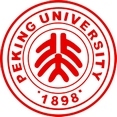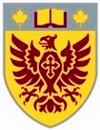How to become a student/postdoc/visiting scholar in OSPAC Here is a list of frequently asked questions with answers. Please read carefully before contacting us. 1. Q: What type of graduate students does OSPAC take? A: To be an OSPAC student, you must satisfy all the university requirements (like the minimum TOEFL requirement). In addition, you should
2. Q: Can I come to visit OSPAC and introduce myself? A: In recent years, we have started to interview (whenever possible) all prospective students. The purpose of the oral interview is to assess the applicant's academic background as well as communication skills. Detailed technical questions will be asked during the interview. Overseas students may be interviewed via telephone or by reliable local OSPAC contacts. You should not come to OSPAC and expect to have an interview without prior invitation. An oral interview will be conducted only if it is pre-arranged. 3. Q: How/when to apply? A: If you believe you are qualified, you can formally apply through ECE department's online application website. Your application will be screened and ranked first by a departmental graduate admissions committee. All successfully screened applications will be made available to faculty members for possible admission. You should contact graduate secretary for all application related questions. If you wish to work within OSPAC, you should indicate Professor Tom Luo's name in your application. 4. Q: Will I receive financial support? How much is it? A: Currently all OSPAC students receive financial support through either university/government scholarships or fellowships, RA or TA. Self-funding is welcome, but it does not increase your chance of being accepted. Exact amount of funding varies from student to student, but it will be enough for you to get a student visa and to support a good quality student life. In the past, some OSPAC students have received sizeable extra research stipend in recognition of their outstanding academic performance. 5. Q: How do I apply for a postdoctoral/visiting scholar position? A: You should send us your resume electronically with a detailed list of publications, research/educational experience and sample publications, and suggest a few names of references who can comment on your research accomplishment and communication skills. If we find your background/record interesting, we will contact you for further details/interview. Applications for postdoc/visitor positions are accepted all year round. The exact level of financial support will depend on your research experience, academic accomplishment, and the availability of funds. 6. Q: Does OSPAC take any summer students? How do I apply? A: We sometimes take summer students from the 3rd year class or above. In rare cases, I also take exceptional 2nd year students. These students usually work with OSPAC graduate students in some research projects, like collecting/processing data, running computer simulations/literature survey etc. The students must have an outstanding transcript and a desire to learn the advanced concepts in research. They must possess good communication skills. A project report is usually required at the end of the summer job. To apply, simply circulate your transcript and resume to our attention and book an appointment to discuss the possibility. 7. Q: How large is OSPAC group? What goes on within OSPAC? A: The size of OSPAC varies from year to year, but we try to keep it between 5 and 10, with a healthy mixture of graduate students, postdocs, and visiting scholars. We hold stimulating research meetings weekly to study interesting research topics, discuss various research problems, and brainstorm. We also organize various social events each year, like biking/BBQ trips in the summer/fall, and skiing trips in the winter. We also gather in Professor Luo's house several times each year to celebrate holidays. 8. Q: What does OSPAC students/postdocs do after finishing their study? A: They mostly go to R/D positions in high tech companies or research labs. Some have got academic positions in universities. |
To Prospective Students |



